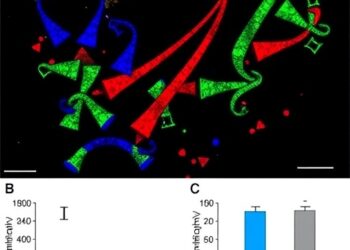Non-alcoholic fatty liver disease (NAFLD) is an emerging global health issue, recognized as one of the leading causes of chronic liver disease. The worldwide prevalence of NAFLD stands at 32.4%, with higher rates in males (39.7%) compared to females (25.6%). NAFLD is characterized by the abnormal accumulation of lipids in hepatocytes and elevated liver enzyme levels. Progression of NAFLD can lead to non-alcoholic steatohepatitis (NASH), liver cirrhosis, and hepatocellular carcinoma (HCC). Recently, NAFLD has been redefined as metabolic dysfunction-associated fatty liver disease (MAFLD) to better reflect its association with metabolic abnormalities. MAFLD shows a higher risk of disease progression compared to NAFLD.
Vitamin D, a crucial fat-soluble vitamin, plays significant roles in calcium homeostasis and bone health. Beyond these classical roles, vitamin D is recognized for its potential benefits in various non-skeletal health domains, including its anti-inflammatory, antioxidant, and anti-fibrotic effects. The liver is integral to vitamin D metabolism, converting it to its active form, calcitriol, which exerts numerous biological effects.
Mechanistic Insights into Vitamin D’s Role in NAFLD
Anti-Inflammatory Effects: Vitamin D modulates immune responses by downregulating pro-inflammatory cytokines such as TNF-α and IL-6, while upregulating anti-inflammatory cytokines like IL-10. This modulation helps in reducing liver inflammation, a critical component of NAFLD progression.
Antioxidant Effects: Vitamin D enhances the expression of antioxidant enzymes, thereby reducing oxidative stress in hepatocytes. Oxidative stress is a key driver of liver injury in NAFLD, making this antioxidant effect particularly valuable.
Lipid Metabolism: Vitamin D influences lipid metabolism by regulating the expression of genes involved in fatty acid synthesis and oxidation. By promoting lipid oxidation and reducing lipid synthesis, vitamin D helps prevent lipid accumulation in the liver.
Fibrosis Inhibition: Vitamin D inhibits hepatic stellate cell activation, which is a pivotal event in the development of liver fibrosis. This inhibition occurs through various signaling pathways, highlighting the potential of vitamin D in preventing liver fibrosis.
Numerous clinical studies and trials have explored the relationship between vitamin D levels and NAFLD. Observational studies have consistently shown an inverse correlation between serum vitamin D levels and the severity of NAFLD. Randomized controlled trials have demonstrated that vitamin D supplementation can lead to significant improvements in liver enzyme levels, reduction in liver fat content, and amelioration of histological features of NAFLD. These findings underscore the potential of vitamin D as a therapeutic agent in managing NAFLD.
The therapeutic potential of vitamin D in NAFLD management is promising due to its multi-faceted roles in liver health. However, the optimal dosage, treatment duration, and long-term effects of vitamin D supplementation remain to be fully determined. Furthermore, the interaction between vitamin D and other NAFLD treatments, such as lifestyle modifications and pharmacological agents, warrants further exploration. Future research should focus on large-scale, long-term clinical trials to confirm the benefits of vitamin D and to establish comprehensive guidelines for its supplementation in NAFLD management.
Vitamin D presents a potential adjunctive therapy for NAFLD owing to its anti-inflammatory, antioxidant, and anti-fibrotic properties. Further studies are required to establish definitive guidelines for vitamin D supplementation in NAFLD, ensuring optimal patient outcomes. As research progresses, vitamin D could become a cornerstone in the multifaceted approach to managing NAFLD and its complications.
Full text:
The study was recently published in the Exploratory Research and Hypothesis in Medicine.
Exploratory Research and Hypothesis in Medicine (ERHM) publishes original exploratory research articles and state-of-the-art reviews that focus on novel findings and the most recent scientific advances that support new hypotheses in medicine. The journal accepts a wide range of topics, including innovative diagnostic and therapeutic modalities as well as insightful theories related to the practice of medicine. The exploratory research published in ERHM does not necessarily need to be comprehensive and conclusive, but the study design must be solid, the methodologies must be reliable, the results must be true, and the hypothesis must be rational and justifiable with evidence.
Follow us on X: @xiahepublishing
Follow us on LinkedIn: Xia & He Publishing Inc.




